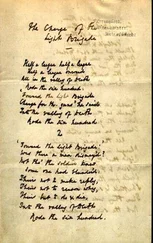Alfred Ellis - The History of the First West India Regiment
Здесь есть возможность читать онлайн «Alfred Ellis - The History of the First West India Regiment» — ознакомительный отрывок электронной книги совершенно бесплатно, а после прочтения отрывка купить полную версию. В некоторых случаях можно слушать аудио, скачать через торрент в формате fb2 и присутствует краткое содержание. Жанр: foreign_antique, foreign_prose, на английском языке. Описание произведения, (предисловие) а так же отзывы посетителей доступны на портале библиотеки ЛибКат.
- Название:The History of the First West India Regiment
- Автор:
- Жанр:
- Год:неизвестен
- ISBN:нет данных
- Рейтинг книги:3 / 5. Голосов: 1
-
Избранное:Добавить в избранное
- Отзывы:
-
Ваша оценка:
- 60
- 1
- 2
- 3
- 4
- 5
The History of the First West India Regiment: краткое содержание, описание и аннотация
Предлагаем к чтению аннотацию, описание, краткое содержание или предисловие (зависит от того, что написал сам автор книги «The History of the First West India Regiment»). Если вы не нашли необходимую информацию о книге — напишите в комментариях, мы постараемся отыскать её.
The History of the First West India Regiment — читать онлайн ознакомительный отрывок
Ниже представлен текст книги, разбитый по страницам. Система сохранения места последней прочитанной страницы, позволяет с удобством читать онлайн бесплатно книгу «The History of the First West India Regiment», без необходимости каждый раз заново искать на чём Вы остановились. Поставьте закладку, и сможете в любой момент перейти на страницу, на которой закончили чтение.
Интервал:
Закладка:
In India, the native army consists of men hostile to us by tradition, creed, and race, who consider their food defiled if even the shadow of a British officer should chance to fall across it, and assuredly it would be as safe a proceeding to garrison our colonies with English negroes as to garrison India with such men. Yet that is done at the present day, and excites no remark.
The English-speaking negro of the West Indies is most excellent material for a soldier. He is docile, patient, brave, and faithful, and for an officer who knows how to gain his affection – an easy matter, requiring only justness, good temper, and an ear ready to listen patiently to any tale of real or imaginary grievance – he will do anything. Of course they are not perfect; they have their faults, like all soldiers, and when they chance to be commanded by an officer who is unnecessarily harsh, or who speaks roughly to them, they manifest their displeasure by passive obedience and a stubborn sullenness. English soldiers, on the other hand, under such circumstances, proceed to acts of insubordination, and it is for military judges to say which mode of expression they prefer.
The West African negro does not appear to such advantage as a soldier. Although all the specimens, with the exception of the Sierra Leone negro, possess the first necessary qualification of personal courage, they are dull and stupid, and cannot be transformed into intelligent soldiers. It may be wondered why the Sierra Leonean, who alone among the West Africans is an English-speaking negro, should be worse than his more barbarian neighbours; but I believe the solution may be found in the fact that the large proportion of slaves landed in former days at Sierra Leone from captured slavers were so-called Eboes, from the tribes of the Niger delta; which tribes all ethnologists are agreed in describing as among the lowest of the African races, and which, it may be remarked, are even at the present day addicted to cannibalism. The West African soldier is a mere machine, who mechanically obeys orders, and never ventures, under any circumstances, to act or think for himself. Should an African be placed on sentry, he fulfils to the letter the orders read to him by the non-commissioned officer who posts him, but frequently entirely ignores their spirit. Sometimes this is productive of amusing incidents. For instance, some years ago, among the orders for the sentry posted at Government House, Sierra Leone, was one to the effect that no one was to be permitted to leave the premises after dark carrying a parcel. This order had been issued at the request of the Governor, to prevent pilfering on the part of his servants. One evening the Governor was coming out of his house with a small despatch-box, when, to his surprise, he was stopped by the sentry, an old African.
"But I'm the Governor," said the astonished administrator, "and I had that order made myself. You mustn't stop me."
"Me no care if you be Gubnor or not," replied the imperturbable African. "The corporal gib de order, and you no can pass." And Her Majesty's representative had to turn back and leave his despatch-box at home.
The greatest objection to the African, however, is the strange fact that no amount of care or attention on the part of his instructors can ever make him a good or even a fair shot. In the 1st West India Regiment there are still a few Africans remaining, most of whom have from twelve to eighteen years' service; and who have annually expended their rounds without hitting the target more than once or twice during the whole musketry course. Give these men a rifle rested on a tripod, and tell them to align the sights upon some given mark, and they cannot do it. They will frequently aim a foot or two to the right or left of an object only a few yards distant. Every possible plan has been tried to make them improve, but all have equally failed; and, in consequence, Africans are not now enlisted. Still, although on account of this failing, African troops could never, in these days of long-range firing, meet Europeans in the field, a battalion of Africans would be quite good enough for bush fighting against an enemy like the Ashanti, a still worse marksman, and worse armed; or against tribes armed with the spear or assegai.
Of course one reason of the African's dulness is that until he enlists, that is until he is from twenty-four to thirty years of age, he has never exercised his mind in any way; and the long years of mental idleness have produced a sluggishness which makes it extremely difficult for him to acquire anything new that requires thought. After enlisting, he picks up a species of unintelligible English, but that is the most that he can do. It is pitiful to see these men, some of them now old, struggling day after day, according to regulation, in the regimental school, to learn their letters. It is to them the greatest punishment that could be inflicted, and though they attend school for years, they rarely succeed in doing more than master the alphabet.
In former days, whenever the cargo of a captured slaver was landed at Sierra Leone, a party from the garrison used to be admitted to the Liberated African Yard for the purpose of seeking recruits amongst the slaves. Many of the latter, pleased with the brilliant uniform, and talked over by the recruiting party, who were men specially selected for this duty on account of their knowledge of African languages, offered themselves as recruits. If medically fit, they were invariably accepted, though it must have been well known that they could not possibly have had any idea of the nature of the engagement into which they were entering. Some fifteen or twenty recruits being thus obtained, they were given high-sounding names, such as Mark Antony, Scipio Africanus, etc., their own barbaric appellations being too unpronounceable, and then marched down in a body to the cathedral to be baptised. Some might be Mohammedans, and the majority certainly believers in fetish, but the form of requiring their assent to a change in their religion was never gone through; and the following Sunday they were marched into church as a matter of course, along with their Christian comrades. Although thus nominally christianised, they still remained at heart believers in fetish, for it is a remarkable fact that no adult West African has ever become a bonâ-fide convert, and the missionaries have long since given up attempting to proselytise grown persons, reserving all their efforts for children. Holding, as they did, in great dread all fetish, or obeah, practices; usually someone amongst them, more cunning than the rest, professed an acquaintance with the supposed diabolical ritual; and gained influence with, and extorted money from, his more timid comrades. Officers now in the 1st West India Regiment can remember the time when, there being many Africans in the regiment, the feathers of parrots or scraps of rags might be found in the neighbourhood of the orderly room. Whenever this was the case, it was known that an African was about to be brought before his commanding officer for some neglect of duty or breach of discipline; and these fetishes had been placed there to induce the colonel to deal leniently with the offender. Ridiculous as this practice must seem to every educated person, it sometimes produced the most serious effects upon the credulous Africans; and I have heard old officers speak of instances, which came within their own knowledge, of soldiers who, having found old bones, broken pieces of calabashes, or glass, placed on their beds, immediately resigned themselves to death, saying that "fetish was thrown upon them," and in nine cases out of twelve, so certain were they that it was impossible to escape the coming doom, they positively frightened or worried themselves to death. The professors of fetishism likewise drove a good trade in amulets which rendered the wearer invulnerable. On one occasion at Sierra Leone, a young African who had been recently enlisted displayed with much pride a gri-gri or amulet which he wore on his wrist, and which, he asserted, rendered him invulnerable. His West India comrades laughed at him; and the African, indignant at the doubt thrown upon the efficacy of his charm, drew his knife, and, before he could be stopped, plunged it into his thigh to prove that he spoke the truth. His eyes were opened, unfortunately, too late; for though he was at once removed to the hospital, he died from the effects of this self-inflicted wound. In West India regiments the practice of fetish was made a military crime, and was severely punished. Sufferers or imaginary sufferers from fetishism, however, rarely complained to their officers, for they believed that the occult art practised by the professor was superior to any power held by man, and consequently, culprits were but seldom detected. With the disappearance of Africans from West India regiments, the offence of fetishism has, however, also disappeared.
Читать дальшеИнтервал:
Закладка:
Похожие книги на «The History of the First West India Regiment»
Представляем Вашему вниманию похожие книги на «The History of the First West India Regiment» списком для выбора. Мы отобрали схожую по названию и смыслу литературу в надежде предоставить читателям больше вариантов отыскать новые, интересные, ещё непрочитанные произведения.
Обсуждение, отзывы о книге «The History of the First West India Regiment» и просто собственные мнения читателей. Оставьте ваши комментарии, напишите, что Вы думаете о произведении, его смысле или главных героях. Укажите что конкретно понравилось, а что нет, и почему Вы так считаете.












